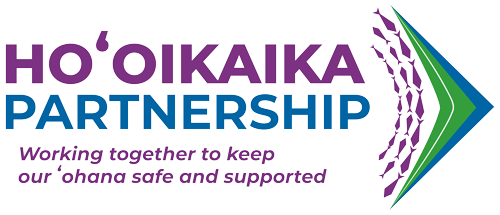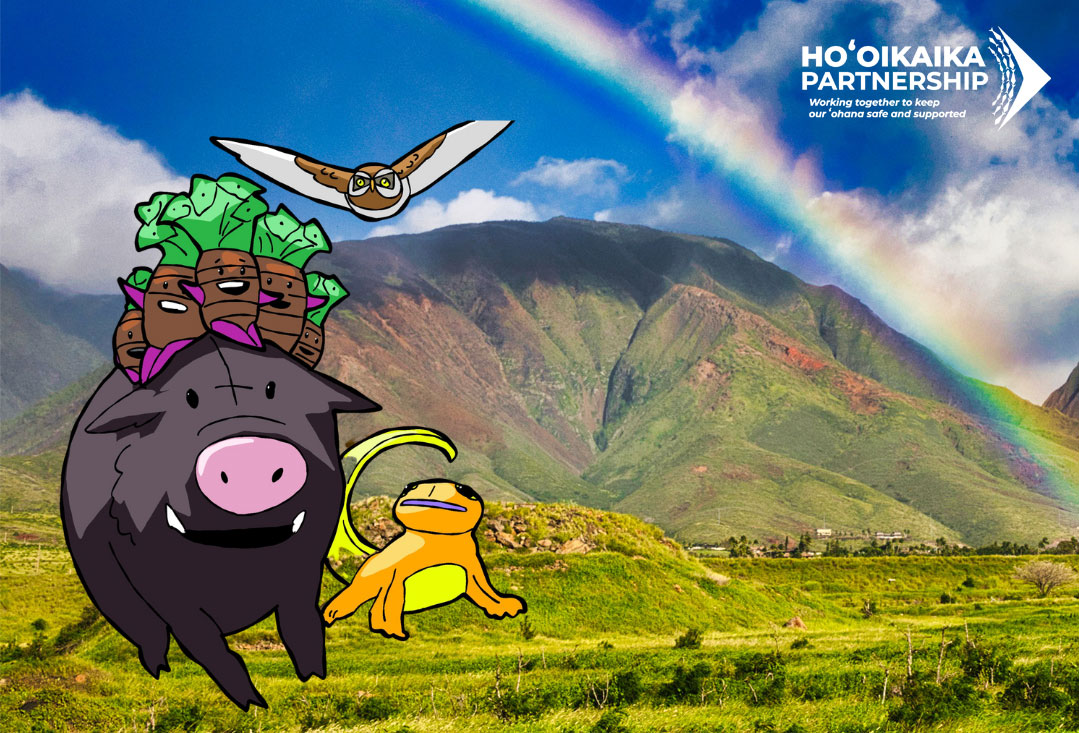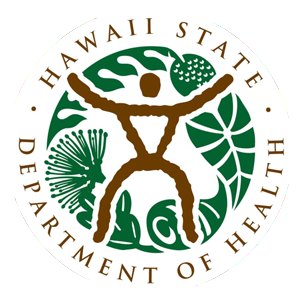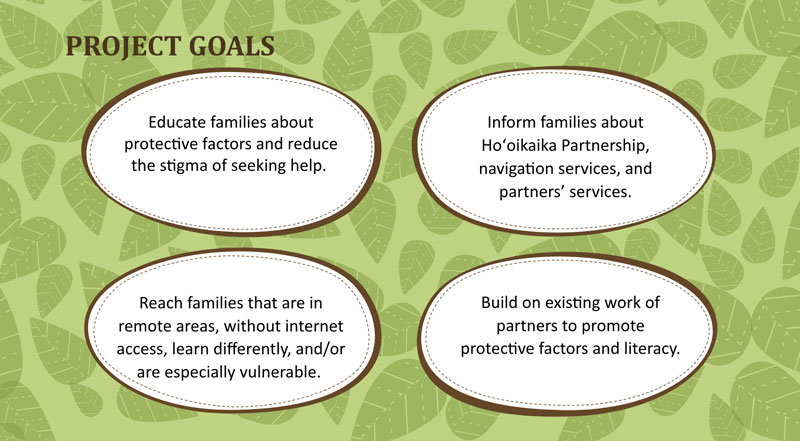
Project Goals
- Educate families about protective factors and reduce the stigma of seeking help.
- Inform families about Ho’oikaika Partnership, navigation services and partners’ services.
- Include consistent HP logo/branding on products.
- Reach families that are in remote areas (e.g., Hana, Molokai, Lanai), without easy access to the internet, learn differently, and/or are especially vulnerable.
- Build on existing work of partners to promote protective factors and literacy.
Concept
- Create products, tools and messages that all partners can use, affordable to reproduce, relevant over time, and can be freely given away
- Spiral-bound board book that teaches about protective factors and includes HP branding and QR code
- Target audience: Parents with children up to age 7
- Use early literacy strategies to encourage parent-child interaction.
Campaign Components
- Develop Protective Factors storybook with Hawai’i/Maui context.
- Create Protective Factors bookmarks, stickers, posters and other products tailored for Hawaiian/Maui context.
- Refresh Hoʻoikaika Brochures and Logo (HP/Who’s in Your Canoe, How You Stay)
- Train providers on Protective Factors/use of book
- Engage participation through partners, social media, websites, and local news.
- Promote Talking is Teaching, a national campaign implemented by Kākou for Keiki to build protective factors and language skills.
- Explore distribution of Aloha at Home messages on Maui.
Protective Factors
Help Keiki & Youth Feel Nurtured Help Adults Paddle More Smoothly Through the Waters of Parenthood- Mālama ʻOhana/Nurturing and Attachment
- Parenting is Can Be Hard, But Can/Knowledge of Parenting and Child Development
- Show Keiki Aloha/ Social and Emotional Competence in Children
- How You Stay/Social Connections
- First, Make Yourself Pono/Parental Resilience
- No Shame / Concrete Support in Times of Need
Why a Book?
- Protective factors can seem so conceptual. A story can bring the concepts alive, helping families put ideas into practice and supporting providers in promoting protective factors.
- Families are asking for more books that offer Hawaiian context and language. It’s important for families to see themselves reflected in stories.
- Storytelling is part of traditional Hawaiian culture – and other cultures too.
- Bridge the “digital divide” and reach families without reliable access to technology.
- Meets multiple goals for child abuse prevention, early literacy and family strengthening.
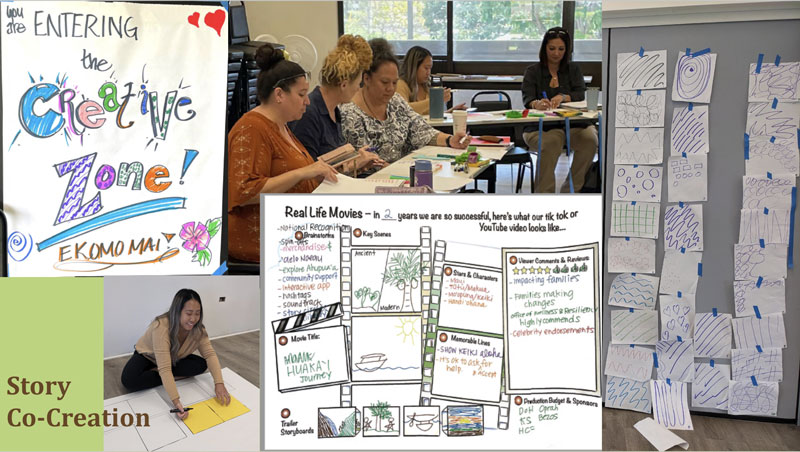
Kalo Boy Book Co-Creators
BEAUTIFULLY ILLUSTRATED by Solomon Enos
WRITING TEAM
- Heidi Allencastre, Hoʻoikaika Navigator, Maui Family Support Services
- Tania Ilaoa, Boys & Girls Clubs of Maui
- Traci Robello, Maui Family Support Services, Early Literacy Project
- Mia Sado-Magbual, Child & Family Service
CREATION TEAM
- Brandy Akimo, LMHC
- Lisa Chau, Website Design & Digital Media Strategy
- Genevieve DeRego, Imua Family Services
- Cynthia Derosier, The Good Juju Co
- Jessica Gleason, Wailuku Public Library, Holoholo Bookmobile
- Ekela Kaniaupio-Crozier, Kamehameha Schools Maui/Cultural Advisor
- Leinaala Kealoha, UH Maui – Ho’oikaika Partnership Intern
- Deb Marois, Converge Consulting, Research & Training
- Kawika Mattos, Maui Family Support Services, Kane Connections
- Dezza Santos, UH Maui – Ho’oikaika Partnership Intern
BEAUTIFULLY ILLUSTRATED by Solomon Enos
Generously funded by the Hawai’i Department of Health, Maui District Health Office

